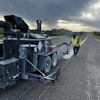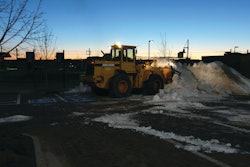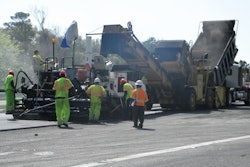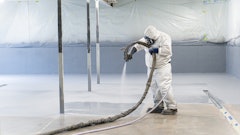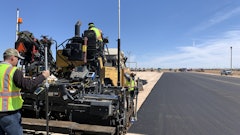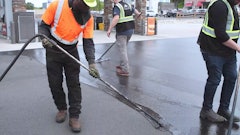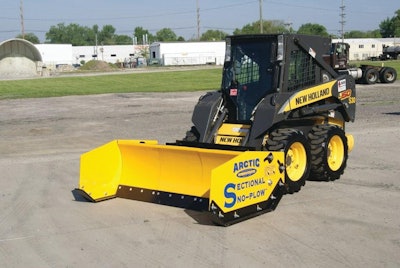
About the only predictable thing in the snow removal business is that each impending season will be as unpredictable as the last. After several strong snow seasons in a row, contractors from Colorado to Michigan to Massachusetts were reminded of this cold, hard fact last year.
"Last season's snowfall was off 25% from the year before, and that amount was off 50% from the year before that," tells Tim Emick, president of Timberline Landscaping in Colorado Springs, CO. "Even this past March, which is typically a strong snow month for us, we only got a quarter-inch. Basically, this has been the driest stretch here since the 1880s."
"Last season was much lighter than the previous year (2010-2011)," says Ben Belote, general manager of Battle Creek Landscape Service in Battle Creek, MI. "We were down about half of what we were the previous year."
Don't bet the farm on snow
Fortunately, Battle Creek Landscape Service only plans for a small amount of revenue from snow removal. "The seasons can be so unpredictable that we plan on a small portion—and if we go over that, great," Belote explains.
Up in Massachusetts, contractor Arnie Arsenault is taking a similar approach. Snow removal is an important part of his company's overall business, but not terribly large. "We maintain around 25 accounts," says Arsenault, co-owner of A. Arsenault & Sons in Spencer. "We like it that way because it's easier to manage. Plus, we're big into holiday lighting, which helps us with additional winter-season revenue."
Maryland contractor Dave Lindoerfer has taken an even more conservative approach. "We never budget for snow removal revenue at all; it's just too unpredictable in the D.C. area," says Lindoerfer, owner of Inside Out Services in Sliver Spring.
That approach proved to be a wise one last season. "We only mobilized a couple of times," Lindoerfer relates. "But the thing that hurts is that, with hardly any snow revenue at all last year, we didn't build up the cushion to get us through our spring cleanups (mulch purchases, labor overtime, etc.). We had to tap into our cash reserves and credit line for the first time in a long time."
Contract types
Lindoerfer's predicament—through no fault of his own, of course—is a good example why many snow removal experts say it's a good idea to have at least a few fixed contracts. That way, some cash flows into your business—even when it doesn't snow. For contractors like Lindoerfer, though, convincing clients to switch to fixed contracts can be a tall order.
"We've never done fixed-price contracts," Lindoerfer points out. "We have always billed by the hour. We're different from contractors in other parts of the country, though. We get such small amounts of snow that we can charge per hour. We've thought about doing some fixed lump-sum bids, especially after last year when we basically got no snow. But it's hard to convince the client."
Back in Michigan, Belote feels the same way. "We aren't looking to do anything significantly different in the way of contracts or pricing," he says. "We've tried to push seasonal (fixed) contracts, but customers are not interested as a whole. They prefer to pay per snow event."
Joel Beaver, owner of 4T Total Lawn in Lenexa, KS, also tends to prefer per-event (aka per-push) contracts. "We've tried bidding on fixed contracts in the past," Beaver says. "We've never gotten one. Quite frankly, I'm glad we haven't. It seems to me that there's a good chance somebody could get hurt; either us or the client. We'd rather charge for the work that we do, breaking it down by inches. To me that seems to be the fairest way, and it's the way we will continue."
Arsenault tries to keep a balance of fixed-cost and per-push contracts, along with a handful that are based on an hourly rate. "It's usually the client that is driving which kind of contract we use, and then it's up to me to accept the terms," Arsenault says.
Products and equipment
In the snow and ice removal business, it's also up to contractors to accept the terms of Mother Nature and make the most of whatever situation arises. To many, that means plowing into the coming season with plenty of leftover deicing material, and in some cases, "new" equipment that was barely put to the test last year.
"We bought two box plows last year and never used them," Lindoerfer says. "So we're not looking to buy much this year. But it seems like this year would be a good year to buy if you needed to. There's a good market for 'used' equipment. A lot of guys got into the plowing business last year thinking it would be easy money. Now they're looking to sell off their equipment because last year didn't work and they want out."
Beaver also bought a couple of new box plows last year. He also bought a new truck and straight blade. None of it saw much use. "So we're not looking to do too much this year," Beaver says. "Right now we have enough reliable equipment to take care of what we have. We'll see how this year goes, and how the election turns out, and then look at replacing a few trucks and plows."
Arsenault plans on buying a Caterpillar wheel loader this year. "We'd picked up a big shopping center and knew we needed a wheel loader to handle it," Arsenault says. "But I'm glad we didn’t make any rash decisions last year. This year, however, we'll be buying that Caterpillar."
If Mother Nature cooperates, all snow removal contractors will be replenishing their inventories of ice melt sometime this winter. But many—including Beaver and Emick—won't be doing so right out of the gate.
"We have a lot of salt and ice melt left over from last year," Beaver says. "We only salted twice last year. So we won't be re-stocking at the start of this season."
"We have a lot of ice melt in inventory to start the season," Emick chimes in. "We try to anticipate storms and temperatures to have just the right amount on hand, but that's getting harder to do here on Colorado's Front Range."
Belote says it is getting harder to decipher fact from fiction when it comes to liquid deicing/anti-icing products. "I would like to venture into liquid deicing, but don't want to try out something on a customer and have it fail," Belote says. "But we are looking into it, and at some point will be trying to encourage some customers to make the switch—possibly to a combination of salt and liquid products."


